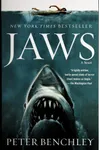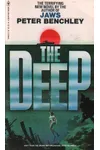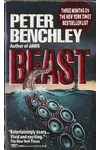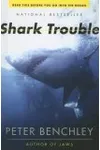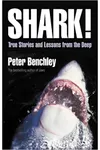Picture an American storyteller who turned the ocean into a stage for heart-pounding thrillers—meet Peter Benchley! Best known for his blockbuster novel Jaws, Benchley didn’t just write books; he redefined how we see the sea, blending adventure with a touch of terror. His tales of maritime mayhem captivated readers and filmmakers alike, but there’s more to this author than shark-infested waters.
Benchley’s life was as fascinating as his stories, from his privileged upbringing to his later years as a marine conservation advocate. Let’s dive into the world of Peter Benchley, where the waves are wild and the legacy is deep.
The Making of Peter Benchley
Born on May 8, 1940, in New York City, Peter Bradford Benchley grew up in a literary family. His father, Nathaniel Benchley, was a noted author, and his grandfather, Robert Benchley, was a humorist and critic. With ink in his blood, young Peter attended Harvard, graduating in 1961. His early career included stints as a journalist for The Washington Post and a speechwriter for President Lyndon B. Johnson. But the ocean called, and Benchley’s fascination with marine life would shape his destiny.
A childhood spent summering on Nantucket Island sparked his love for the sea. By the early 1970s, Benchley channeled this passion into fiction, inspired by real-life shark encounters and his own adventures. His debut novel, Jaws, was a gamble that paid off spectacularly, launching him into literary stardom.
Peter Benchley’s Unforgettable Stories
Jaws (1974) is Benchley’s crown jewel, a gripping tale of a great white shark terrorizing a coastal town. Its lean prose and relentless pacing hooked readers, selling over 20 million copies. The 1975 Steven Spielberg film adaptation cemented its place in pop culture, making beachgoers worldwide think twice about swimming. Benchley’s knack for blending scientific detail with primal fear set the book apart.
Following Jaws, Benchley explored similar themes in The Deep (1976), a treasure-hunting adventure involving shipwrecks and eels. It, too, became a hit film. The Island (1979) tackled piracy and survival, showcasing Benchley’s versatility. Later works like Beast (1991) and White Shark (1994) revisited oceanic horrors but hinted at his growing environmental consciousness. Benchley’s style—vivid, accessible, and steeped in maritime lore—made his books page-turners, though critics sometimes noted their formulaic plots.
His narratives often explored humanity’s fraught relationship with nature, a theme that grew more pronounced as he aged. By weaving real-world issues into fiction, Benchley crafted stories that were as thought-provoking as they were thrilling.
Why Peter Benchley Matters
Benchley’s impact transcends his books. Jaws didn’t just scare readers; it shaped how we view sharks, for better or worse. The novel and film sparked widespread fear, leading to overhunting of sharks. Recognizing this, Benchley spent his later years advocating for marine conservation, writing nonfiction and giving talks to protect ocean ecosystems. His transformation from thriller writer to environmentalist is a testament to his evolving perspective.
Benchley’s work also paved the way for eco-thrillers, inspiring authors to blend adventure with environmental themes. When he passed away in 2006, he left behind a legacy of storytelling that entertains and educates. His ability to captivate while challenging readers to rethink nature’s predators ensures his place in literary history.
About Peter Benchley
- Born: May 8, 1940, in New York City
- Key Works: Jaws, The Deep, The Island, Beast
- Notable: Co-wrote the Jaws screenplay with Carl Gottlieb
- Died: February 11, 2006, in Princeton, New Jersey
Snag Jaws or The Deep and dive into Peter Benchley’s thrilling world of oceanic adventure!
